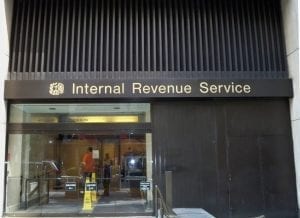But a spokesperson for one debt collection industry group said companies are trying to show “empathy” for Americans hard-hit by coronavirus.
Coronavirus has been something of a boon for debt collectors, who have purportedly taken advantage of stay-at-home orders to harass Americans who outstanding sums.
According to The Los Angeles Times, consumer advocates have sounded the alarm, saying debt collectors have grown increasingly aggressive as the pandemic wears on. Christine Hines, legislative director for the National Association of Consumer Advocates, told the Times that “debt collection will only intensify in the coming months,” even as many Americans struggle with finances, unemployment, and salary reductions.
“The pandemic didn’t change how abusive debt collectors are, it just shows that they are capable of doing even more harm to vulnerable consumers than we thought,” Hines said.

ProPublica notes that debt collectors have vigorously pursued consumers throughout the coronavirus pandemic, despite federal, state, and local legislators attempts to protect Americans’ finances amidst the ongoing crisis.
But, in many cases, debt collectors managed to profit atop stimulus packages intended to help cash-strapped workers. In some states, certain classes of creditor were able to garnish stimulus payments, in part or in whole, and in spite of federal provisions stipulating that stimulus checks should only be intercepted when the intended recipient owes outstanding child support.
However, a lack of clarity in government guidance has forced at least 25 attorneys general to petition Washington for a firm rule prohibiting creditors from seizing stimulus payments in part or in whole.
And even in jurisdictions where lawmakers passed legislation preventing the seizure of stimulus checks, debt collectors have continued to effect wage garnishment whenever possible.
Pamela Foohey, a law professor at Indiana University, told ProPublica that people who never owed extraordinary sums may soon find themselves harangued by creditors. As shelter-in-place and work restrictions have dragged on, many Americans have been forced to rely on credit to pay rent and buy groceries. Without a resumption in regular income, the same people may struggle to fulfill bills and balances.
“There’s going to be a whole swath of people who never thought they’d be in a position to default,” Foohey said. “It’s not productive to be garnishing people’s wages when they need to pay for food and get back on track financially.”
ProPublica observes that wage garnishment disproportionately affects low-earning Americans, especially people of color.
Yet debt collectors have maintained they are doing their best to help consumers pull through the pandemic. Mark Neeb, the chief executive of ACA International—a trade group representing debt collectors—claims the industry “remains committed to consumers” and has responded to the financial difficulties exacerbated by COVID-19 with “compassion and empathy.”
Karen Sidhu, policy counsel at the Center for Responsible Leading, suggested that the ACA’s statement is practically comical.
“They’re just trying to protect their bottom line,” she told the L.A. times.
Sources
Capital One and Other Debt Collectors Are Still Coming for Millions of Americans
Column: Debt collectors see golden opportunity with all of us stuck at home
The IRS says coronavirus economic impact payments can be seized for this reason


Join the conversation!